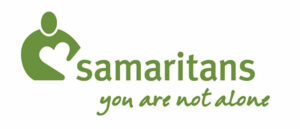By Jane Keller Gordon, Assistant Editor

Photo/Jane Keller Gordon
Boston – When Anthony Bourdain, the famed American celebrity chef, author, and travel documentarian, took his own life in June 2018, callers flooded the 24/7 Helpline at Samaritans Inc. in Boston. Those in need reached well-trained volunteers who were there to listen and provide non-judgmental support. Samaritan’s’ Helpline is completely confidential and has no religious affiliation.
For the past 15 years, Jonathan Grollman has been the volunteer coordinator at Samaritans. Before joining the nonprofit, he had a successful career in sales on the buying and selling side of defense electronics and computer consulting
“All my life I had been chasing money. I felt like I was going through the motions,” Grollman said. “I didn’t have the passion for it anymore.”
To channel his energy into something more meaningful, Grollman, who holds an MBA, starting teaching courses at local colleges.
He connected with Samaritans by chance when he was spending time in Kenmore Square at a friend’s business. Samaritans had an office nearby. Grollman, who had no connection to suicide, started out as a volunteer on the Helpline. Three years later, he joined the staff as a part-time employee, wearing many hats. He now recruits volunteers, supports their training, and provides administrative support.
“We have more than 300 volunteers who range in age. Most answer the phones at our crisis center, but some who are very experienced volunteer from their homes,” he explained. “Three years ago, we introduced texting to connect with the younger generation. Every year, the number of texts gets bigger.”
“On the Helpline, we steer callers towards their pain. It’s not okay to say that they’ll be fine. We don’t offer platitudes, we listen and we encourage people to call back. We’re about being present and not offering advice. Volunteers need to be in a good place in terms of their emotional health, they have to be able to hear some sad stories.”
The Boston office of the Samaritans opened in 1974. According to their 2018 annual report, more than 600 people are lost to suicide each year in Massachusetts. The number in the U.S. is a staggering 45,000 deaths. Suicide is the second leading cause of death among those ages 10 to 24. Next are seniors over 85 who have the second highest rate of suicide.
Last year, the Boston office engaged in nearly 75,000 calls, texts and chats; 12,000 of those contacts were text conversations.
“You don’t have to be suicidal to call the Helpline. We want to talk to someone who is experiencing pain before they get to that point,” Grollman said. “A lot of people who call are lonely, including seniors who are isolated.”
Samaritans also present suicide prevention workshops at middle and high schools, colleges and universities, corporate offices, senior centers, religious institutions, and other community organizations in Boston and the MetroWest area. In 2018, they held 445 workshops, training nearly 11,000 people, about 75 percent of whom were youth.
Another pillar of support provided by Samaritans is for those who have lost a loved one to suicide, known as suicide loss survivors. Grief Support Service is provided through SafePlace meetings and peer-to-peer groups of suicide loss survivors, which provide a forum for exploring feelings often not understood by others.
In 2018, there were more than 1,100 visits to SafePlace meetings in six locations. Samaritans also provides a Survivor to Survivor Network, where volunteers who are suicide loss survivors meet with other survivors at their home or in another comfortable setting of their choice.
To learn more about Samaritans’ services and programs, visit samaritanshope.org.
If you’re feeling hopeless, lonely, confused or sad, anytime, call or text Samaritans at 877-870-HOPE (4673).













